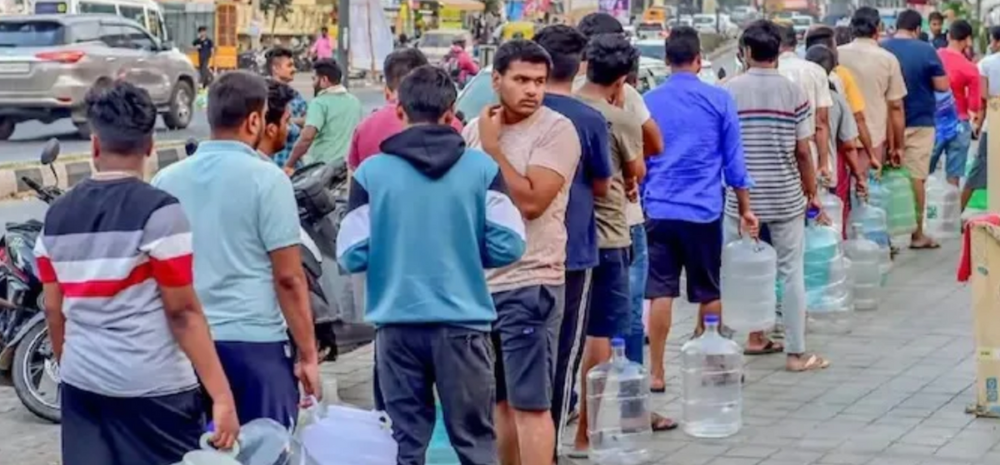Amidst Bengaluru’s water crisis, exacerbated by rapid urbanization, shocking revelations emerge: a 79% decline in water spread areas and an 88% loss of vegetation over the last 50 years. In fact, as per a IISc study, 93% of Bengaluru is concrete jungle, as rapid urbanization has destroyed nature.

Explore the reasons behind the vanishing water in Bengaluru.
- Drastic Urbanization Trends:
- Built-up areas in Bengaluru have surged by a staggering 1055% in recent decades.
- However, this has coincided with a significant 79% decline in water spread areas and an 88% loss of vegetation over the last 50 years.
- Impact on Water Resources:
- The reduction in water spread area, from 2,324 hectares in 1973 to 696 hectares in 2023, has severely affected groundwater levels.
- Encroachment and pollution have ravaged 98% of lakes, with 90% receiving untreated sewage or industrial effluents, further diminishing groundwater recharge.
- Rise in Pollution and Temperature:
- The surge in built-up areas has led to higher air pollution levels and increased temperatures.
- The loss of green cover exacerbates these issues, contributing to environmental degradation.
- Insufficient Green Cover:
- Remote sensing data reveals a stark reality: only 1.5 million trees support a population of 9.5 million in Bengaluru.
- This inadequate green cover fails to sequester respiratory carbon effectively, further aggravating pollution concerns.
- The Role of Information Systems:
- The Bengaluru Information System (BUiS) and Bangalore Lakes Information System (BLIS) aim to provide valuable insights into the city’s urban dynamics.
- These systems visualize tree distribution, water bodies, and ecologically sensitive regions, aiding researchers and policymakers.
- Consequences of Unplanned Urbanization:
- Uncontrolled urbanization has led to a plethora of issues, including pollution, resource inequity, traffic congestion, slum proliferation, and unemployment.
- Additionally, reliance on fossil fuels has increased, exacerbating environmental challenges.
- Contributions and Solutions:
- Researchers, including Bharath H Aithal, Vinay S, Tulika Mondal, and Abhishek Baghel, have played pivotal roles in collecting historical data and setting up information systems.
- Addressing the challenges posed by urbanization requires concerted efforts towards sustainable development and environmental conservation.











